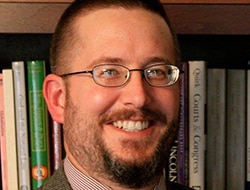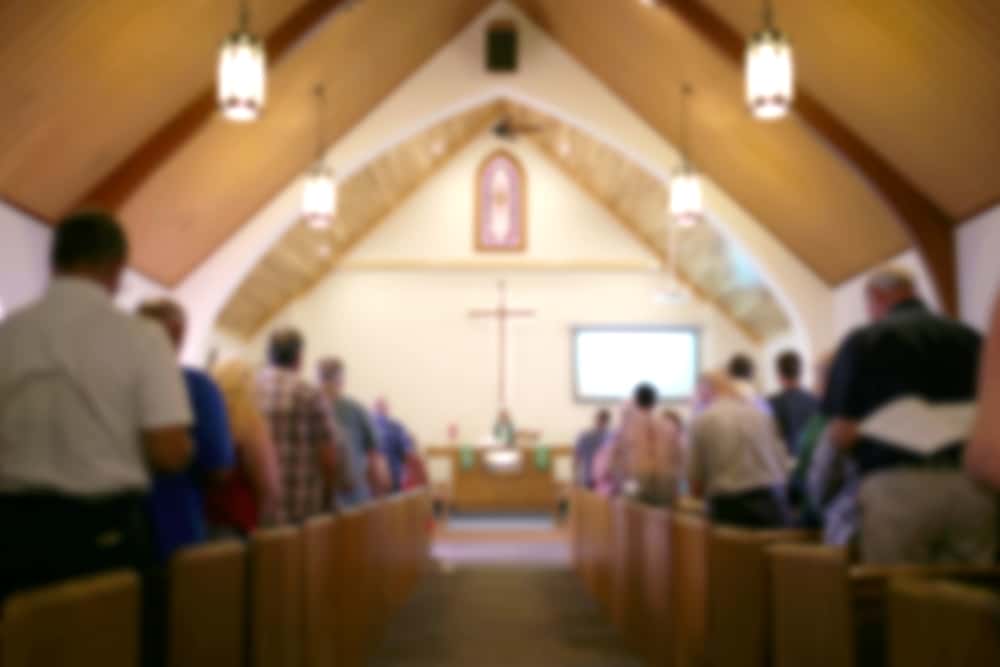
The Gospel for the Third Sunday of Easter has always intrigued me. When I was young, I accepted without question the idea that the two disciples on the road to Emmaus (Lk 24:13-35) did not recognize the Lord, and I delighted in the moment of revelation in the breaking of the bread.
As I grew older, my thoughts turned more to matters of practicality. Why didn’t they know him? While not of the Twelve, they were clearly close to the inner circle, because they were present when the myrrh-bearing women returned to the upper room with the news that the tomb was empty. Christ’s appearance as they walked with him was not out of the ordinary (no transfigured body is mentioned by Luke), so did that mean that he intentionally disguised himself, or placed a veil over their minds? (Is that what Luke means by “their eyes were opened”?) Or maybe (though this always seemed like a stretch) they didn’t recognize him because they weren’t expecting to see him alive again, or in such circumstances.
Only recently have I connected the experience of Cleopas and his companion with the teaching of the last three popes regarding the centrality of the encounter with Christ to the Catholic faith in general and to our personal faith.
Theology and doctrine, from the creeds on down, flows from that experience, rather than the other way around. We use our reason, and the tool of philosophy, to arrive at a greater understanding of our experience. Yes, it’s possible to become intellectually convinced of the truth of Christianity before one has fully experienced that encounter with Christ, but without the encounter, there is no faith in the Christian sense of the word.
Cleopas and his companion recounted “the things that have taken place there [in Jerusalem] in these days,” and he who was at the center of those events “interpreted to them what referred to him in all the Scriptures.” He gave them a lesson, an intellectual one, and explicitly tied their lack of understanding to their lack of faith: “How slow of heart to believe all that the prophets spoke!”
So what, in the end, opened their eyes? “[W]hile he was with them at table, he took bread, said the blessing, broke it, and gave it to them.”
The sacrament itself was the encounter: “he was made known to them in the breaking of the bread.” That was the moment of faith, “the realization of things hoped for and the evidence of things not seen” (Heb 11:1). The encounter in the sacrament was the experience that allowed them to understand why their hearts were burning “while he spoke to us on the way and opened the Scriptures to us.”
They saw Christ, and yet did not believe. Then they experienced the sacrament, and came to believe. And suddenly, we see an additional meaning in Jesus’ words to Thomas in John 20:29: “Have you come to believe because you have seen me? Blessed are those who have not seen and have believed.”
There have been times in my life when I wished I had been one of those disciples, times when I thought that, having met Christ face to face, my faith would be stronger. Yet Judas betrayed him, and so did Peter, and of the Twelve, only John was there at the foot of the cross. They all came back, of course, with the exception of Judas, and in the wake of Christ’s ascension and the descent of the Holy Spirit, their faith grew strong enough that all, with the exception of John, died a martyr’s death.
Our encounter with Christ in the sacraments is not the same as their encounter with him in flesh and blood. But as the experience of Cleopas and his companion on the road to Emmaus shows, we aren’t missing anything. For us, as for them, he makes himself known in the breaking of the bread.
Scott P. Richert is publisher for OSV.





